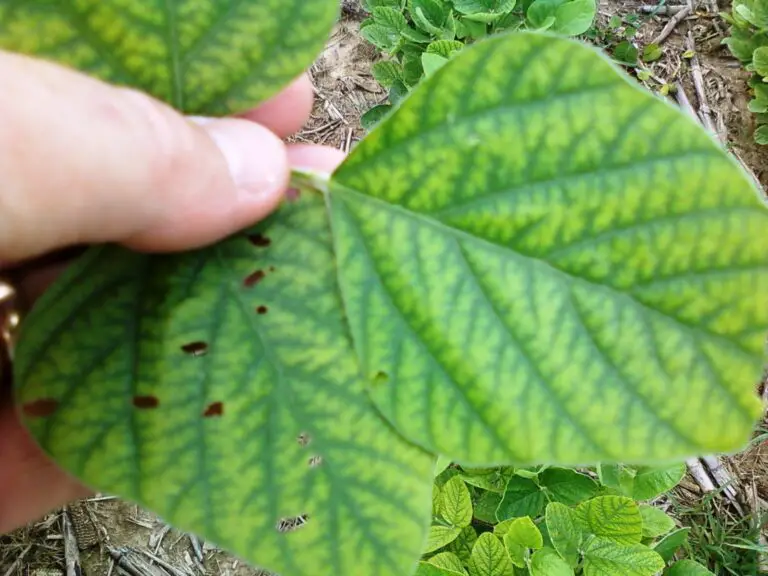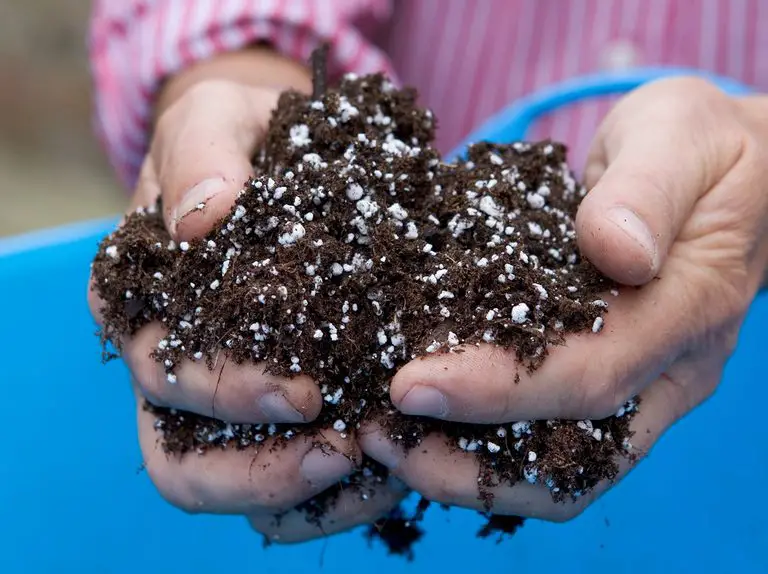Alfalfa Meal: The Best Supercharging Your Soil’s Fertility
Table of Contents
Benefits of Using Alfalfa Meal in Soil Improvement
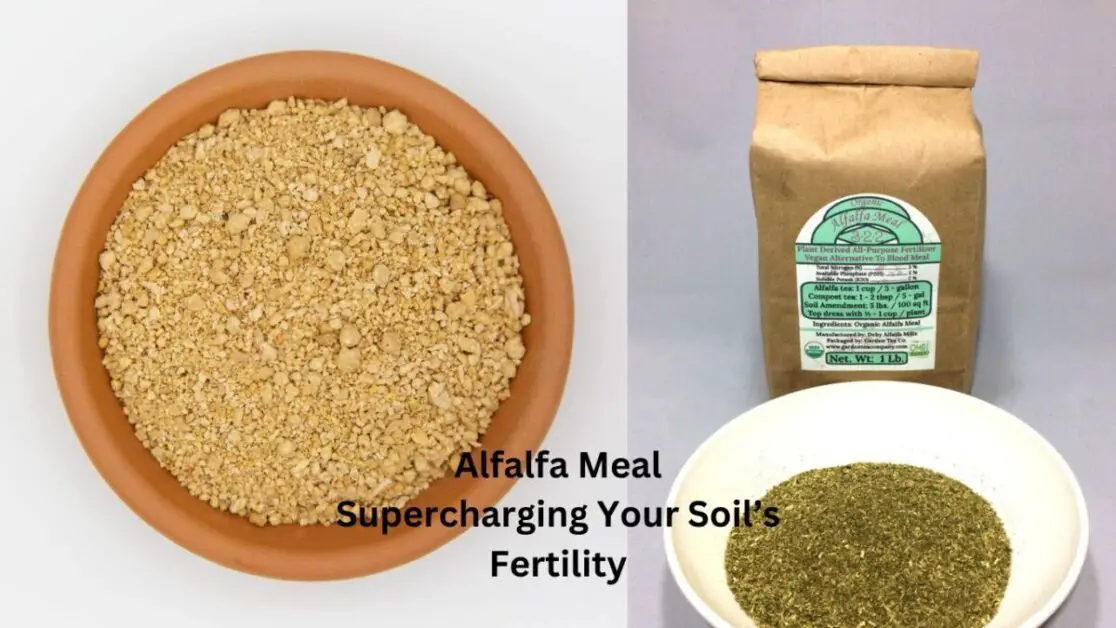
Alfalfa meal is a valuable addition to any soil improvement routine, offering a plethora of benefits to gardeners and crop growers. Its use in soil enhancement has gained popularity due to its ability to address various soil deficiencies and promote healthier plant growth.
One notable benefit of using alfalfa meal is its rich nutritional composition. This organic fertilizer contains essential nutrients such as nitrogen, phosphorus, and potassium, which are vital for plant development. Additionally, alfalfa is an excellent source of trace elements like iron, magnesium, and calcium, which are necessary for proper plant nutrition. These nutrients are released slowly over time, providing a sustained source of nourishment for plants.
Moreover, alfalfa acts as an effective soil conditioner, improving soil structure and promoting optimal root growth. Its fibrous nature increases the porosity of soil, allowing for improved airflow and drainage. This not only prevents waterlogged conditions but also provides plants with ample oxygen, which is crucial for their metabolic processes. Additionally, the organic matter in alfalfa meal enhances soil aggregation, leading to a more crumbly and friable soil texture. This creates an ideal environment for root penetration and nutrient absorption.
Understanding the Nutritional Composition of Alfalfa
Alfalfa is a versatile and nutrient-rich soil amendment that has gained popularity among gardening enthusiasts. To fully understand its potential benefits, it is essential to delve into the nutritional composition of this remarkable organic material.
One of the key components of alfalfa is its high protein content, which typically ranges from 15% to 20%. This makes it an excellent source of nitrogen, an essential nutrient for plant growth and development. Nitrogen plays a crucial role in promoting lush foliage, enhancing root development, and increasing overall plant productivity. Additionally, alfalfa contains a wide range of other vital nutrients, including phosphorus, potassium, calcium, and trace minerals like iron and magnesium. These nutrients are fundamental for supporting various physiological processes in plants, such as photosynthesis, enzyme activation, and energy production.
Furthermore, alfalfa is renowned for its rich organic matter content. Organic matter is valuable for improving soil structure, enhancing water holding capacity, and facilitating nutrient absorption by plants. As it decomposes, alfalfa releases organic compounds that feed beneficial soil microorganisms, promoting a healthy and thriving soil ecosystem. This, in turn, aids in the breakdown of organic matter and the release of essential nutrients for plant uptake. Ultimately, the nutritional composition of alfalfa meal makes it an ideal choice for enriching soil fertility and promoting robust plant growth.
(Note: The paragraph above contains a brief overview of the nutritional composition of alfalfa. Further details on specific nutrient concentrations and ratios can be included in subsequent sections of the article.)
How Alfalfa Meal Boosts Soil Fertility
Alfalfa meal is an excellent natural fertilizer that can greatly enhance soil fertility. Its effectiveness lies in its rich nutrient composition, which includes essential elements such as nitrogen, phosphorus, and potassium. These nutrients are essential for plant growth and play a crucial role in improving soil fertility.
Nitrogen, a vital nutrient for plants, is found abundantly in alfalfa . It is a key component of proteins, enzymes, and chlorophyll, all of which are essential for plant growth and development. By incorporating alfalfa into the soil, gardeners can provide a steady and long-lasting supply of nitrogen to their plants, promoting healthy foliage growth and robust root development.
Additionally, alfalfa meal contains significant amounts of phosphorus, a nutrient critical for energy transfer in plants. Phosphorus is involved in several vital plant processes, including photosynthesis, respiration, and the formation of DNA and cell membranes. By adding alfalfa to the soil, gardeners can ensure that their plants have access to an adequate supply of phosphorus, ultimately improving their overall health and vitality.
Furthermore, alfalfa meal is a valuable source of potassium, a nutrient essential for regulating water balance, promoting root development, and strengthening plants against diseases and pests. Potassium helps plants withstand stressors such as drought, excessive heat, and pests, resulting in stronger, healthier plants.
In conclusion, alfalfa meal is a powerful soil amendment that greatly boosts soil fertility. With its high content of essential nutrients such as nitrogen, phosphorus, and potassium, it provides plants with the fuel they need to thrive and flourish. Incorporating alfalfa into your soil improvement routine can lead to healthier, more productive plants in your garden.
Enhancing Soil Structure with Alfalfa Meal
Alfalfa meal is a powerhouse when it comes to enhancing soil structure. Its fibrous nature aids in creating a well-drained and porous soil environment, which is crucial for optimum plant growth. When incorporated into the soil, alfalfa acts as an effective soil conditioner, promoting soil aggregation and enhancing its overall structure.
One of the primary benefits of alfalfa in enhancing soil structure is its high content of organic matter. Organic matter, such as the cellulose and lignin found in alfalfa meal, serves as a binding agent, helping to form stable soil aggregates. These aggregates improve soil porosity and allow for better root penetration, water infiltration, and air circulation. As a result, plants are better able to access nutrients, oxygen, and water, leading to healthier and more vigorous growth.
In addition to its contribution to soil aggregation, alfalfa also contains significant amounts of silica. Silica plays a crucial role in strengthening plant tissues and improving overall plant health. When present in the soil, silica helps to fortify the cell walls of plants, enhancing their resilience to stress, disease, and pests. This, in turn, leads to stronger root systems and increased nutrient uptake, further improving soil structure and promoting plant vitality.
By incorporating alfalfa meal into your soil improvement routine, you can harness its ability to enhance soil structure, creating a favorable growing environment for your plants. Improved soil structure not only supports healthier plant growth but also aids in preventing erosion and increasing water-holding capacity, ultimately contributing to the long-term sustainability of your garden or farm.
The Role of Alfalfa Meal in Improving Soil Drainage
Improving soil drainage is crucial for promoting healthy plant growth and preventing waterlogged conditions that can lead to root rot and other issues. One effective method of enhancing soil drainage is by incorporating alfalfa into the soil. Alfalfa , which is made from dried and ground alfalfa plants, has been widely recognized for its numerous benefits in soil improvement.
Alfalfa meal contains high levels of organic matter, which helps to increase the soil’s ability to drain excess water. The organic matter acts as a sponge, absorbing water and holding it until the excess is removed through drainage. This is particularly beneficial for heavy clay soils, which tend to have poor drainage capabilities. By incorporating alfalfa into the soil, gardeners can improve the structure of clay soils and promote better water movement.
In addition to its organic matter content, alfalfa also contains natural compounds that aid in soil aeration. These compounds help to break up compacted soil, creating channels for water to flow through more easily. As a result, the soil becomes less compacted, allowing for better drainage and root growth. By improving soil aeration with alfalfa, gardeners can create a healthier environment for their plants, ensuring that they receive the oxygen they need for optimal growth.
Overall, the role of alfalfa in improving soil drainage cannot be overstated. Its high organic matter content and natural compounds contribute to better water movement, reduced compaction, and enhanced aeration in the soil. Whether you are dealing with heavy clay soils or simply want to promote healthier plant growth, incorporating alfalfa into your soil improvement routine can make a significant difference.
Alfalfa Meal as a Source of Organic Matter for Soil
Alfalfa meal, derived from the dried and ground leaves of the alfalfa plant, is a valuable source of organic matter for soil improvement. Organic matter plays a crucial role in enhancing soil fertility and overall soil health. When incorporated into the soil, alfalfa acts as a nutrient-rich amendment, providing essential elements that are necessary for plant growth and development.
The high organic content of alfalfa increases the soil’s ability to retain water, allowing for better moisture availability to plant roots. Additionally, it aids in improving soil structure, promoting better aeration and drainage. These factors are vital for the proliferation of beneficial microorganisms in the soil, which contribute to the breakdown of organic matter and the release of nutrients for plant uptake.
Moreover, alfalfa meal acts as a slow-release fertilizer, gradually providing essential nutrients to plants over time. This characteristic is particularly beneficial in organic gardening, where synthetic fertilizers are often avoided. The organic matter content of alfalfa also boosts soil aggregation, preventing soil erosion and runoff. As a result, plants grown in soil amended with alfalfa tend to have improved root development, increased nutrient utilization, and enhanced overall growth.
Incorporating alfalfa meal into your soil improvement routine can be a valuable strategy for organic gardeners to enhance soil fertility and plant performance. Its organic matter content, slow-release nutrients, and ability to improve soil structure make it a valuable tool in sustainable agriculture practices. Whether you have a vegetable garden, flower beds, or container plants, the addition of alfalfa to your soil can have significant positive impacts on both plant health and overall garden productivity.
Improving Soil Aeration with Alfalfa
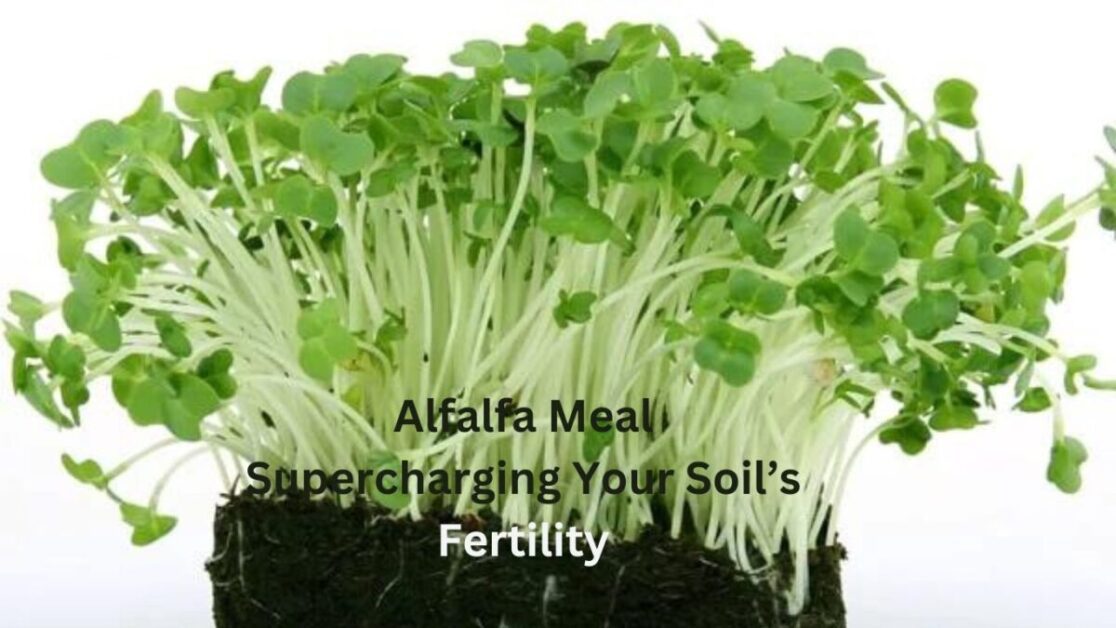
Alfalfa meal is an excellent natural amendment that can greatly improve soil aeration. Good soil aeration is essential for healthy plant growth as it allows the roots to access oxygen, which is vital for various metabolic processes. When soil is compacted or lacks proper oxygenation, plants may suffer from root rot or nutrient deficiencies, leading to stunted growth and reduced yields.
Alfalfa can help address this issue by creating a more porous soil structure. The fibrous nature of alfalfa promotes the formation of air pockets within the soil, allowing for better airflow and oxygen exchange. As the alfalfa breaks down, it releases organic matter that helps bind the soil particles together, preventing compaction. This improved soil structure not only enhances aeration but also aids in water infiltration, root penetration, and nutrient distribution.
Additionally, alfalfa acts as a food source for beneficial soil organisms like earthworms, which further contribute to soil aeration. These organisms help break down organic matter, providing channels for air and water movement. The increased activity of these soil-dwelling creatures promotes a healthier and more balanced soil ecosystem, creating an ideal environment for thriving plants.
Incorporating alfalfa into your soil improvement routine can greatly benefit gardeners and farmers alike. Not only does it enhance soil aeration, but it also improves overall soil quality, leading to healthier plants and increased yields. By utilizing this natural amendment, you can create an optimal soil environment that supports robust growth and ensures long-term sustainability. So why not give alfalfa a try and experience the remarkable difference it can make in your garden or farm?
Alfalfa Meal’s Contribution to Soil Microbial Activity
Alfalfa meal, with its rich composition of organic matter and essential nutrients, is known to significantly contribute to soil microbial activity. Microbes, such as bacteria, fungi, and other microorganisms, play a crucial role in soil health and fertility, and alfalfa provides them with the ideal environment to thrive.
One of the key ways in which alfalfa meal enhances soil microbial activity is through its high carbon-to-nitrogen ratio. This ratio, often referred to as C:N ratio, determines the breakdown of organic matter in the soil. As alfalfa decomposes, it releases carbon, which serves as a valuable energy source for soil microbes. The higher the C:N ratio, the more energy is available for microbes, leading to an increase in their population and metabolic activity.
In addition to providing an energy source, alfalfa meal also acts as a stimulus for beneficial microbes. It contains natural compounds, such as saponins and phytochemicals, which are known to promote the growth of beneficial bacteria and fungi in the soil. These microorganisms aid in the decomposition of organic matter, nutrient cycling, and the suppression of harmful pathogens, ultimately contributing to a healthier and more balanced soil ecosystem.
The combination of the carbon-rich composition and microbe-stimulating properties of alfalfa makes it a valuable tool for gardeners and farmers seeking to improve soil microbial activity. By incorporating this organic amendment into their soil improvement routines, they can foster a robust microbial community, leading to enhanced nutrient availability, disease suppression, and overall soil fertility. So, by using alfalfa , gardeners and farmers can harness the power of soil microbes and unlock the full potential of their crops.
Stay tuned for the next section, where we will delve into the topic of using alfalfa to increase soil water retention.
Using Alfalfa Meal to Increase Soil Water Retention
Increasing soil water retention is a crucial aspect of maintaining healthy and vibrant plant growth. One effective method of achieving this is by incorporating alfalfa meal into your soil improvement routine. Alfalfa, derived from the legume crop commonly known as lucerne, offers numerous benefits in enhancing the water-holding capacity of the soil.
Alfalfa meal acts as a natural sponge, capable of absorbing large amounts of water and gradually releasing it back to the plants. This attribute is owed to its high organic matter content, particularly lignin and cellulose, which help to improve soil structure and create a favorable environment for water retention. Additionally, the fibrous texture of alfalfa allows it to act as a moisture reservoir, holding water and preventing rapid evaporation. By incorporating alfalfa into your soil, you can create a more moisture-retentive environment that aids in sustaining plant hydration and reducing water stress.
Alfalfa Meal’s Impact on Soil pH Levels
Maintaining the correct pH level in your soil is crucial for the overall health and productivity of your plants. The pH scale, which ranges from 0 to 14, measures the acidity or alkalinity of the soil. Most plants prefer a slightly acidic to neutral pH level, around 6 to 7, as this allows them to absorb essential nutrients efficiently. However, soil pH can vary depending on various factors, such as the type of soil, climate conditions, and surrounding vegetation. This is where the use of alfalfa can make a significant impact.
Alfalfa meal, with its high alkaline nature, can help raise the pH level of acidic soil. When applied to the soil, alfalfa releases minerals such as calcium, magnesium, and potassium, which contribute to increasing the soil’s pH. This is particularly beneficial for plants that thrive in neutral or alkaline conditions, such as many vegetables and legumes. By incorporating alfalfa into your soil improvement routine, you can create a more favorable environment for your plants, promoting optimum nutrient uptake and overall growth. It is worth noting, however, that before using alfalfa meal to adjust soil pH, it is essential to conduct a soil test to determine the existing pH level and ensure the appropriate dosage of alfalfa is applied.
The Effect of Alfalfa on Soil Nutrient Availability
Alfalfa meal, derived from the perennial legume plant Medicago sativa, has long been hailed for its remarkable benefits in improving soil nutrient availability. When incorporated into the soil, alfalfa releases a range of essential macronutrients, micronutrients, and other plant-friendly compounds, which play a crucial role in supporting healthy plant growth and development.
One of the key ways in which alfalfa enhances soil nutrient availability is through its high nitrogen content. Nitrogen is a vital nutrient required by plants for various physiological processes, including chlorophyll production and protein synthesis. The decomposition of alfalfa in the soil leads to the gradual release of nitrogen, supplying a steady source of this essential element to plants over an extended period. This steady supply of nitrogen not only promotes robust vegetative growth but also supports the development of lush foliage and vibrant, colorful blooms.
Moreover, alfalfa also contains significant levels of phosphorus and potassium, two nutrients critical for overall plant health and development. Phosphorus is involved in energy transfer and root development, while potassium aids in photosynthesis, water regulation, and disease resistance. By providing a balanced ratio of these essential nutrients, alfalfa helps ensure plants have access to the building blocks necessary for optimal growth and productivity.
Additionally, alfalfa meal acts as a natural fertilizer by enhancing the soil’s organic matter content. Organic matter serves as a nutrient reservoir and a vital component in maintaining soil health. It promotes the growth of beneficial soil microorganisms, improves soil structure, and enhances water retention capacity. The decomposition of alfalfa replenishes the organic matter content, fostering a fertile soil environment that supports nutrient cycling and availability to plants.
To maximize the effect of alfalfa on soil nutrient availability, it is recommended to apply it prior to planting or during soil preparation. This allows ample time for the alfalfa to decompose and release its nutrient-rich goodness, ensuring plants receive the optimum nutrition they require for robust growth and abundant yields.
In conclusion, the use of alfalfa as a soil amendment can significantly impact soil nutrient availability. With its rich nutrient content, including nitrogen, phosphorus, and potassium, alfalfa provides plants with the essential elements necessary for healthy growth and development. Moreover, by enhancing the soil’s organic matter content, alfalfa creates a harmonious environment that supports the efficient cycling and availability of nutrients. Incorporating alfalfa meal into your soil improvement routine can undoubtedly contribute to thriving gardens and bountiful harvests.
Alfalfa Meal as a Natural Weed Suppressant
Alfalfa meal, derived from the nutrient-rich alfalfa plant, has long been recognized as an effective natural weed suppressant. This organic amendment offers a safe and sustainable solution for controlling unwanted plant growth in gardens and landscapes. By understanding the mechanisms through which alfalfa meal acts as a weed suppressant, gardeners can harness its power to create weed-free environments without the need for harmful chemicals or back-breaking labor.
One key attribute of alfalfa meal is its ability to inhibit weed germination. The high nitrogen content in alfalfa meal creates an unfavorable environment for weed seeds, preventing them from sprouting and establishing themselves. This nitrogen-rich amendment also stimulates the growth of desired plants, giving them a competitive advantage over weeds. Furthermore, alfalfa meal contains a range of essential minerals and trace elements, promoting overall plant health and vigor, which further enables them to outcompete weeds.
In addition to inhibiting weed germination, alfalfa meal acts as a natural weed suppressant by creating a physical barrier. When applied as a mulch, it forms a dense layer that blocks sunlight from reaching the soil surface, discouraging weed growth. This mulching effect also helps in preserving soil moisture, reducing the need for frequent irrigation and creating an unfavorable condition for weed establishment. As the alfalfa meal breaks down over time, it enriches the soil with organic matter and nutrients, improving its structure and fertility, which further contributes to weed suppression.
Incorporating alfalfa meal into your gardening routine can have numerous benefits beyond weed control. Its ability to enrich soil, enhance nutrient availability, and promote beneficial microbial activity makes it a valuable asset in the pursuit of healthy and productive plants. So why resort to harmful chemicals when you can harness the power of nature with alfalfa meal?
Alfalfa Meal’s Role in Enhancing Plant Growth and Yield
Alfalfa meal is renowned for its ability to enhance plant growth and increase yields, making it a valuable addition to any gardening routine. With its rich nutritional composition and organic matter content, alfalfa meal provides plants with a wide range of essential nutrients that stimulate healthy growth and development.
One of the key ways in which alfalfa meal enhances plant growth is through its ability to promote root development. The high levels of phosphorus found in alfalfa meal stimulate root growth, allowing plants to establish a strong foundation for nutrient absorption. Additionally, the presence of beneficial microorganisms in alfalfa meal enhances root health by improving nutrient uptake and protecting against root diseases.
Furthermore, alfalfa meal acts as an excellent source of nitrogen, a crucial nutrient for plant growth and vigor. Nitrogen is essential for the production of chlorophyll, the pigment responsible for photosynthesis. By providing plants with a steady supply of nitrogen, alfalfa meal ensures optimal photosynthetic activity, leading to increased energy production and enhanced plant growth.
In addition to its nutritional benefits, alfalfa meal also improves soil structure, enhancing the overall health of plants. The organic matter in alfalfa meal helps create a loose and well-aerated soil structure, allowing for better root penetration and nutrient uptake. The improved soil structure also increases water infiltration and moisture retention, preventing the risk of waterlogging and drought stress for plants.
Overall, the inclusion of alfalfa meal in soil improvement routines can significantly enhance plant growth and yield. Its rich nutritional composition, root-stimulating properties, and ability to improve soil structure make it an invaluable tool for gardening enthusiasts seeking to optimize the health and productivity of their plants.
Methods of Applying Alfalfa Meal to Soil
To make the most of alfalfa meal’s benefits, it is important to know the various methods of applying it to the soil. One popular method is topdressing, where you sprinkle a layer of alfalfa meal on the soil surface around the base of your plants. This allows the organic matter to gradually break down and release its nutrients, enriching the soil over time. For optimal results, make sure to evenly distribute the meal and avoid direct contact with the plant stems to prevent any potential burning.
Another method is incorporating alfalfa meal into the soil during the initial soil preparation or when transplanting. This involves mixing the meal into the soil to ensure its nutrients are evenly distributed throughout the planting area. This method is particularly effective for improving overall soil fertility, providing a steady supply of nutrients to plants as they grow. Remember to follow the recommended application rates and thoroughly mix the meal with the soil to maximize its benefits.
Both methods have their advantages, and the choice ultimately depends on your specific gardening needs and preferences. Experimenting with different techniques can help you determine the method that works best for your plants and soil conditions. By properly applying alfalfa meal to your soil, you can harness its nutrient-rich components and enhance the overall health and vitality of your plants.
Considerations for Using Alfalfa Meal in Organic Gardening
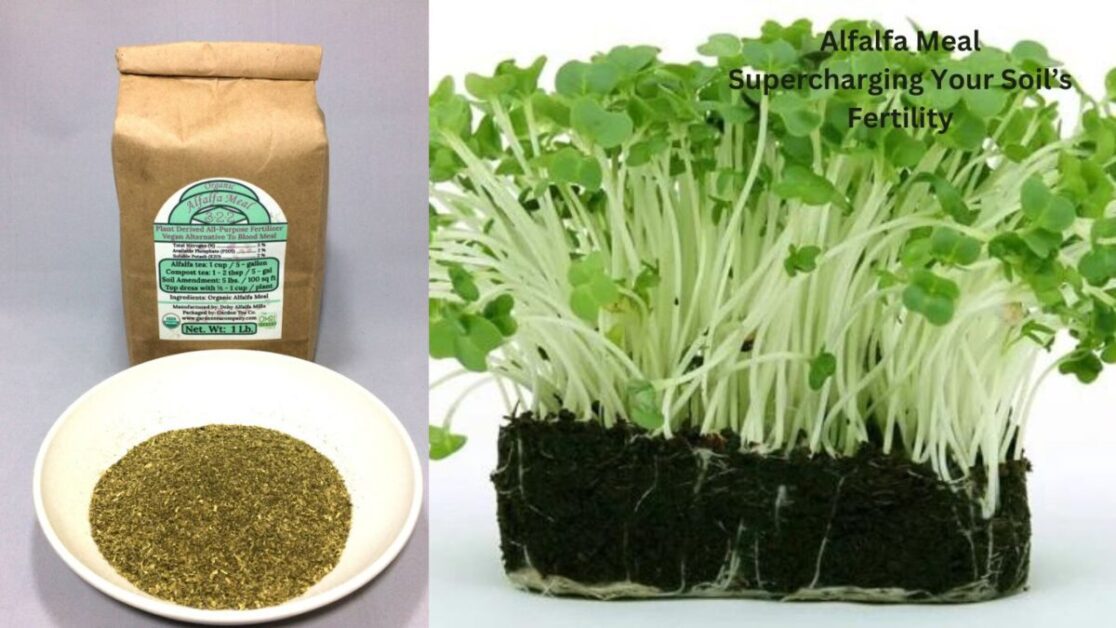
Considerations for Using Alfalfa Meal in Organic Gardening
When it comes to organic gardening, incorporating alfalfa meal into your soil improvement routine can be a valuable addition. However, there are a few considerations to keep in mind to ensure you maximize its benefits.
Firstly, it’s important to note that alfalfa meal is rich in nitrogen, which makes it an excellent source of plant nutrition. However, this high nitrogen content means it should be used judiciously and in accordance with the specific needs of your plants. Over-application can lead to excessive foliage growth at the expense of flower or fruit production.
In addition, alfalfa meal is a slow-release fertilizer, meaning its nutrients are gradually broken down and made available to plants over an extended period. This slow-release nature makes it a suitable choice for long-term soil enrichment, but it may not provide immediate results for plants with immediate nutrient deficiencies. Therefore, it’s essential to plan ahead and incorporate alfalfa meal into your garden well in advance of planting.
Another consideration is the potential for weed growth when using alfalfa meal. While it has natural weed suppressant properties, it’s important to apply it properly and at the recommended rates to avoid inadvertently promoting weed growth. Additionally, incorporating a layer of organic mulch over the alfalfa meal can provide an extra barrier against weed emergence.
Moreover, alfalfa meal can slightly increase the pH level of the soil over time, making it more alkaline. This can be beneficial for acid-loving plants, but it may not be suitable for those that prefer more acidic conditions. Regular monitoring of the soil pH and adjustments, if necessary, will help you maintain optimal growing conditions for your plants.
In conclusion, utilizing alfalfa meal in organic gardening can offer numerous benefits, but careful consideration is essential. Understanding its nutrient content, slow-release nature, and potential effects on pH and weed growth will help you effectively incorporate it into your soil improvement routine while maintaining a healthy and thriving garden.
Here’s a table highlighting the benefits and uses of alfalfa meal for enhancing soil fertility:
| Characteristics | Alfalfa Meal |
|---|---|
| Nutrient Content | Rich source of nitrogen, phosphorus, potassium, and other essential trace minerals such as calcium and magnesium. Contains vitamins, amino acids, and growth-promoting hormones. |
| Organic Matter | High in organic matter, which improves soil structure, enhances moisture retention, and promotes beneficial microbial activity. |
| Slow Release Nitrogen | Provides a slow-release form of nitrogen, feeding plants gradually over time and reducing the risk of nitrogen leaching. |
| pH Adjustment | Slightly alkaline in nature, alfalfa meal can help to raise soil pH in acidic soils, making it more favorable for a wider range of plants. |
| Soil Amendment | Used as a soil conditioner and amendment to improve overall soil fertility, texture, and tilth. |
| Mulching | Can be used as a mulch to suppress weeds, conserve soil moisture, and gradually release nutrients into the soil as it decomposes. |
| Compost Activator | Accelerates the decomposition process when added to compost piles, providing a source of nitrogen and stimulating microbial activity. |
| Crop Rotation Aid | Incorporating alfalfa meal into crop rotation plans can help replenish soil nutrients, break pest cycles, and improve soil health over time. |
| Animal Feed | Additionally, alfalfa meal is commonly used as a nutritious feed for livestock, providing protein and essential nutrients for growth and health. |
Alfalfa meal is a versatile and valuable addition to organic gardening and farming practices, offering multiple benefits for soil fertility and plant health.
Tips for Incorporating Alfalfa Meal into Your Soil Improvement Routine
Incorporating alfalfa meal into your soil improvement routine can provide numerous benefits for your garden. Here are some tips to help you effectively use this organic amendment:
1. Calculate the correct dosage: Before applying alfalfa meal to your soil, it’s important to determine the appropriate dosage based on your specific needs. Measure the area you want to treat and refer to the product instructions to determine the recommended amount per square foot or acre. Applying the correct dosage will ensure that you reap the full benefits without overloading the soil.
2. Work it into the soil: Once you have determined the proper dosage, it’s time to incorporate the alfalfa meal into your soil. Use a garden fork or tiller to mix the meal evenly into the top few inches of soil. This will help distribute the nutrients and organic matter throughout the root zone of your plants.
Remember to water the soil thoroughly after application to aid in the breakdown and absorption of the nutrients. Regularly monitoring soil pH and nutrient levels will also help you gauge the effectiveness of your alfalfa meal amendment. With proper application, you’ll soon start reaping the rewards of healthier, more productive plants.
By following these tips, you can effectively incorporate alfalfa meal into your soil improvement routine, giving your plants the nutrients they need for optimal growth.
How often should I incorporate alfalfa meal into my soil?
It is recommended to incorporate alfalfa meal into your soil once or twice a year, depending on the specific needs of your plants and soil conditions.
Can I use alfalfa meal on all types of soil?
Yes, alfalfa meal is beneficial for most types of soil, including sandy, clay, and loamy soils. However, it is always a good idea to conduct a soil test to determine the specific requirements of your soil before applying alfalfa meal.
Is alfalfa meal suitable for container gardening?
Yes, alfalfa meal can be used in container gardening. However, it is important to use it in moderation, as excessive amounts can cause nutrient imbalances and affect the pH levels in the container soil.
How long does it take for alfalfa meal to break down and release its nutrients?
The breakdown time of alfalfa meal can vary depending on factors such as soil temperature, moisture levels, and microbial activity. Generally, it takes a few weeks to a few months for the nutrients in alfalfa meal to become available to plants.
Can I apply alfalfa meal directly to the plant foliage?
No, it is not recommended to apply alfalfa meal directly to plant foliage. It is best to incorporate it into the soil to ensure the nutrients are evenly distributed and absorbed by the roots.
Can I mix alfalfa meal with other soil amendments or fertilizers?
Yes, you can mix alfalfa meal with other soil amendments or fertilizers to create a well-balanced soil amendment blend. However, it is important to follow the recommended application rates for each product and consider the specific needs of your plants.
How long will it take to see the effects of using alfalfa meal in my soil?
The effects of using alfalfa meal in soil can vary depending on various factors such as soil conditions, plant types, and application rates. In general, you may start noticing improvements in soil fertility and plant growth within a few weeks to a few months.
Can I use alfalfa meal as a standalone fertilizer?
While alfalfa meal contains valuable nutrients, it is not considered a complete fertilizer. It is best used as a soil amendment to improve overall soil health and provide a slow-release of nutrients over time. Supplementing with additional fertilizers may be necessary for specific nutrient requirements.
Is there a risk of over-applying alfalfa meal to the soil?
Over-applying alfalfa meal can lead to nutrient imbalances and affect the pH levels of the soil. It is important to follow the recommended application rates and consider conducting a soil test to determine the specific needs of your soil.
Can alfalfa meal attract pests or insects to my garden?
Alfalfa meal itself does not attract pests or insects. However, improper storage or application of alfalfa meal can attract pests such as rodents. It is important to store alfalfa meal in a sealed container and evenly distribute it in the soil to minimize any potential pest issues.





